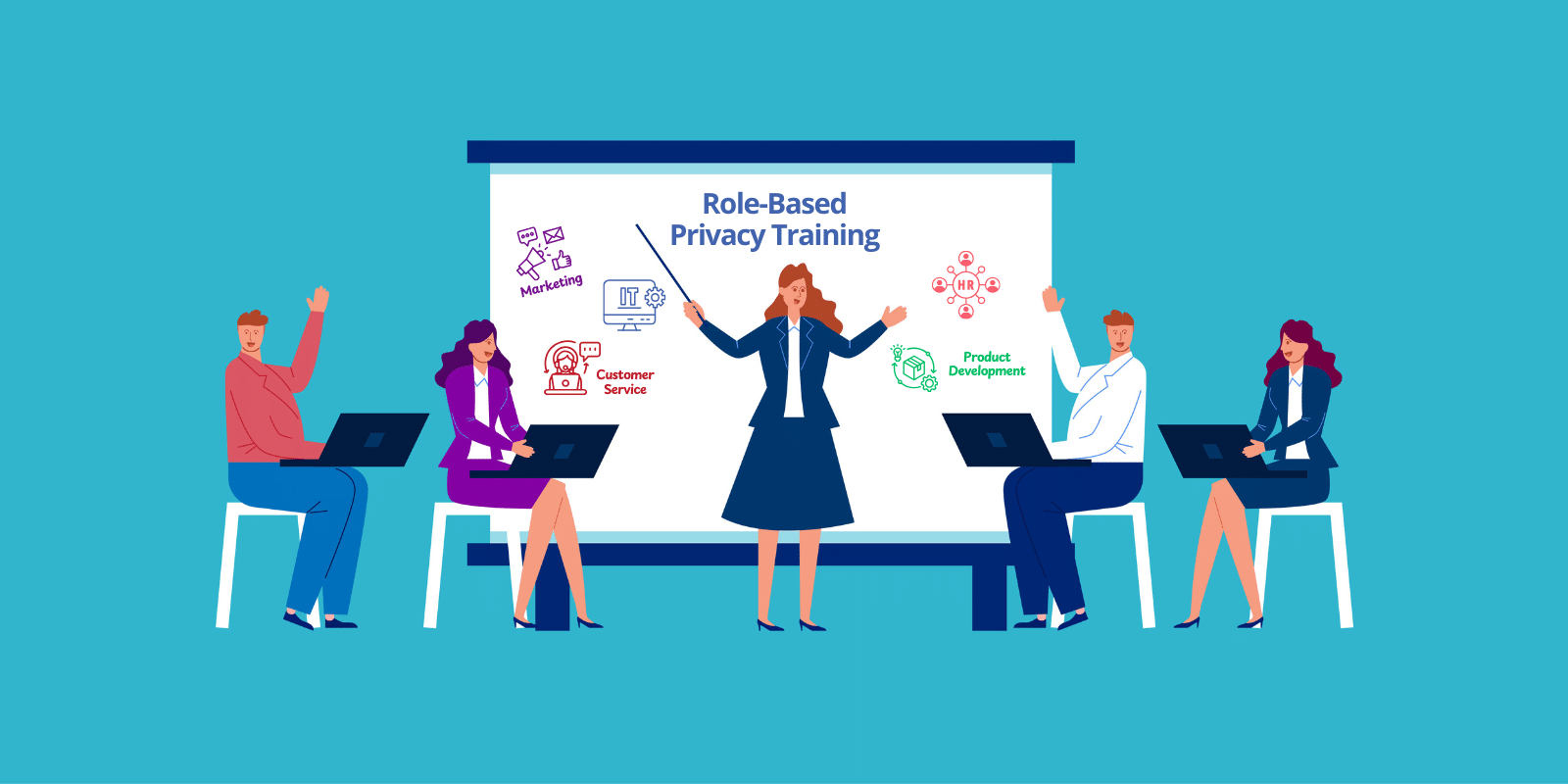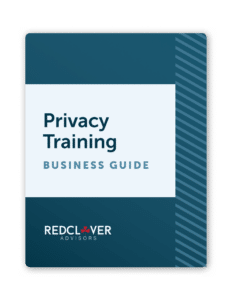Most colleges and universities require students to take classes outside their core requirements and their major. These elective courses make up a small number of credit hours overall, but they’re critical to a well-rounded perspective.
But let’s be honest: in most cases, students often pay a lot less attention to their elective classes. It’s not that they’re not interested—but it’s understandable that an engineering student wouldn’t prioritize homework for Intro to Art History over Fluid Mechanics.
As human beings, we naturally gravitate towards the subjects we think are interesting or directly impact our lives. Engineers want to learn about engineering, and business students want to learn about business. Everything else just gets a little less effort.
If people don’t see the relevance, it’s like cramming for a final—they’ll forget it as soon as the test is over.
This leads us to one of the most common issues with building an effective privacy program: effective privacy training.
Company-wide privacy training is an important part of your privacy program. However, to build true employee buy-in and improve its efficacy, you have to make that training relevant to each person in the organization.
The answer? Role-based privacy training.
What is role-based privacy training?
Company-wide training is an important aspect of risk mitigation and general awareness and can provide a broad overview of data privacy and security. As more of a one-size-fits-all approach to data privacy, it’s great for new employees, annual reminders, and significant events such as the passage of new state regulations.
Think of company-wide training as a starting point.
Role-based privacy training builds on company-wide training to provide specialized information to the people who need it for their job functions. This ensures that people interacting with sensitive data are properly trained to interact (or avoid interacting) with that information.
Benefits of role-based privacy training
There is a lot to talk about in any privacy training, but not all information is relevant to every department or team. Different teams handle data differently within an organization.
Role-based privacy training allows for specialized skill development that is directly relevant to someone’s role and, more importantly, accurate to how they may interact with data privacy and data security. This, in turn, leads to:
- Increased relevance and engagement
- Better retention of information
- Improved compliance and risk mitigation
When we are required to do some sort of company-wide training, it’s easy for people to assume that it’s irrelevant to their day-to-day role. Role-based training breaks that mindset and reframes the training as something to focus on and remember.
Examples of role-based privacy training in different departments
Each business has a unique structure. Depending on your size and business model, here are some areas of specialized training to consider.
Marketing and sales teams
Marketing and sales professionals play an integral role in data collection, including determining what data is needed and how it could best be utilized. To handle data collection correctly, they need comprehensive training on data collection and consent practices, the proper use of customer data for campaigns, and how to comply with anti-spam and marketing regulations.
While this is important for risk mitigation and compliance, it can also greatly affect the success of your marketing and sales teams. Data privacy is a significant element of building consumer trust and can play a major role in how you promote your business and interact with leads and prospects.
Human resources
HR folks interact with a significant amount of sensitive employee data daily. Some state and international regulations, such as the EU’s GDPR and California’s CCPA, have specific requirements for employee data processing that your HR team needs to understand. Plus an amendment to Colorado’s Privacy Act poses limitations on collecting an employee’s biometric information.
Other training considerations for HR include:
- How to handle employee personal data
- Best practices for privacy notices required under GDPR and CCPA
- Data retention and deletion policies
- How to manage access rights for employee data
Product Development
Data collection and privacy are becoming increasingly critical components of product development and rollout, and role-based training can improve how your team brings a new product to market. For example:
- Privacy by design principles make data privacy and security a baseline requirement from the beginning of product design. This can mitigate risk and save your company time and money through more accurate project management projections.
- Data minimization techniques and secure coding practices for data protection protect your customers and your business and play a major role in how you sell your product.
- Privacy impact assessments are often a requirement for new products, particularly ones that deal with sensitive data or the data of minors.
Customer service
Employees working in customer service often interact with private customer information daily. They may have access to home addresses, emails, and phone numbers. Customer service role training should include:
- How they can or cannot use, share, or process customer data
- How to process data subject access requests
- The importance of verifying a customer’s identity before sharing any information
As part of training for customer service teams, walk employees through how to handle real-life scenarios for handling requests and steps for handling them. This will help customer support feel more confident about appropriate responses—real-life questions can lead to fewer surprises!—and reduce the likelihood of missteps in DSARs.
IT and security
Even if your IT and security team members are seasoned professionals, your business’s processes and procedures are specific to your organization. Each team member should understand their role and responsibilities in the context of your privacy program, including:
- How to implement technical safeguards
- Incident response and breach notification procedures
- Data encryption and access control management
Privacy Training Business Guide
Download our Privacy Training Guide to create effective privacy training programs.

How to implement role-based privacy training
It’s one thing to know you want role-based privacy training. It’s another to implement an effective training program. Here are a few steps to get you started:
- Conduct a needs assessment to understand how many different roles need specific training. Privacy impact assessments can identify training needs for each department, and a data inventory can help you achieve a bird’s-eye view of how data travels through your organization.
- Once you know what role-based training you need, focus on developing tailored training materials. This training should include realistic company scenarios that are relevant to how each department would interact with data. If you need help developing the training modules, a third-party expert can help design a training program specific to your business’s needs.
- Make sure your training content aligns with relevant privacy regulations based on your jurisdiction and operations (e.g., HIPAA, CCPA, Washington’s My Health My Data Act). Similarly, incorporate realistic scenarios of how regulations impact your company and its data processing.
- Include information on the consequences of non-compliance for both individuals and the organization. For anyone who interacts with vendors or other third parties, include guidance on how to evaluate and assess third-party risk.
- Determine what delivery method will be most impactful for your team. In-person training can often improve focus and information retention, but it may not be feasible for some companies. Others may find that online learning, microlearning, or lunch and learns work best.
- Monitor and measure the effectiveness of your training. Gather employee feedback and consider testing employees to see what is going well and what could be further improved.
- Build processes to avoid common challenges in role-based training. For example, plan to regularly review your training and processes in the event of a major update to industry regulations.
Privacy training isn’t an elective for today’s businesses
To get ahead, you have to think smarter than the competition. With the right data privacy syllabus, you can solve problems before they start, engage your employees, and stand out as a leader in your industry.
Want to stay ahead of the curve? Check out Red Clover’s podcasts, newsletters, and resources that entertain and educate on the latest industry updates.


